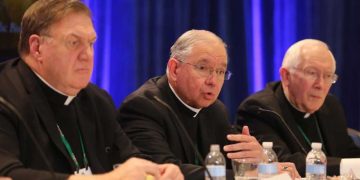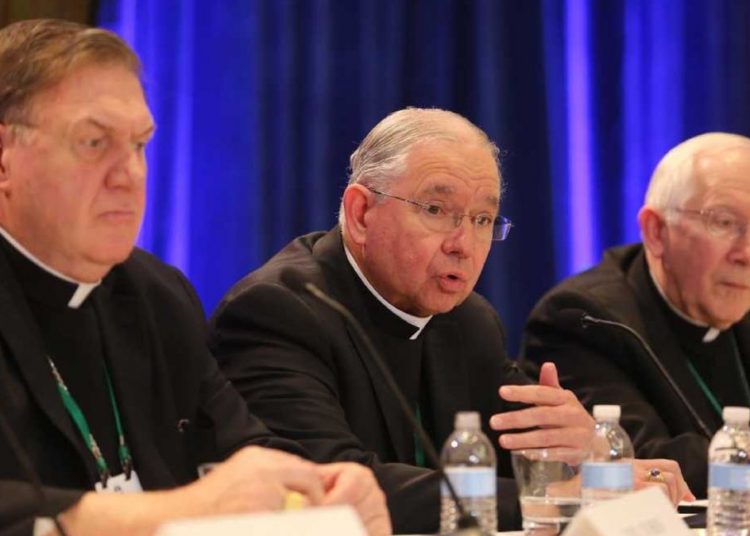Upon his swearing in to the Presidency, Joe Biden would be only the second Catholic in the nation’s nearly 250 years to hold that office. The first was John F. Kennedy in 1961. As with Biden, Kennedy’s relationship with his Church’s teachings was messy, to say the least. In an intervention that has become infamous to some American Catholic historians, a small group of Bishops issued a statement in late October of 1960, in the closing days of the campaign, urging Catholics to withhold their vote from any candidate who disagreed with the Church’s teachings against abortion. Kennedy, similarly to Biden, maintained that his opposition to abortion was a question of “personal belief” rather than of public policy, but the Bishops—then, as now—disagreed. Some commentators attribute this raising of concern by Kennedy’s own co-religionists as at least partly responsible for the tightening in the race that occurred just before the election. Kennedy ended up narrowly defeating Richard Nixon by one of the slightest margins in history.
Well, as has been said, history, if it does not exactly repeat itself, at least can be said to “rhyme.” In 2020, we have had yet another Catholic candidate for President, whose policy stances run counter to his Church’s teachings in several respects; who also hides behind a weak and dubious distinction between “private belief” and public action; whose election margins were the slimmest possible; and who has exacerbated a rift among other members of his Church. And now, as of this week, we can add another similarity to the list, because Biden has attracted words of warning and criticism from the Catholic hierarchy—some would say, too late (though others more familiar with the phlegmatic dispositions and Gordian complexities of Church committees generally would say better late than never, and actually relatively prompt when compared with other responses from such bodies).
At their annual meeting (which always takes place in November, since the Church calendar begins with the first Sunday of Advent each year), the USCCB (United States Conference of Catholic Bishops) discussed, among other things, the prospect of America’s second Catholic President and his being, like his sole predecessor, a rather wayward one.
The President of the Bishops’ Conference, Los Angeles Archbishop José Gomez, issued a surprising statement on Tuesday, at the behest of “the Chairmen of several Committees” who, he said, had “come to [him] recently to express a particular concern in the wake of the election.”
The fact of Biden’s Catholicism, Gomez said, “presents certain opportunities, but also certain challenges.” While acknowledging, somewhat blandly, that Biden “has given… reason to believe that his faith commitments will move him to support some good policies,” Gomez focused the bulk of his statement on those areas where Biden is out of step with the Church’s teachings.
Gomez expressed concern that Biden has pledged to “support policies that attack some fundamental values we hold dear as Catholics.” He went on to enumerate some of these, and explain the gravity of the concerns they raise:
These policies include the repeal of the Hyde amendment and the preservation of Roe v. Wade. Both of these policies undermine our “preeminent priority” of the elimination of abortion. These policies also include restoration of the HHS mandate, the passage of the Equality Act, and the unequal treatment of Catholic schools.
These policies pose a serious threat to the common good whenever any politician supports them. We have long opposed these policies strongly, and we will continue to do so. But when politicians who profess the Catholic faith support them, there are additional problems. Among other things, it creates confusion with the faithful about what the Church actually teaches on these questions.
Perhaps most surprisingly of all, Gomez announced the establishment of a new “Working Group” within the Bishops’ Conference to focus on these concerns, headed by Conference Vice-president, Archbishop Allen Vigneron of Detroit. The Group, he said, would “consist… of the Chairmen of the Committees responsible for the policy areas at stake, as well as Doctrine and Communications,” and promised to “provide more information about this initiative shortly after the conclusion” of the annual meeting.
It is reasonable for some to wish that this comparatively decisive action would have preceded, rather than follow, the election; however, given the general reticence of the Bishops to involve themselves in candidate politics, it is not altogether surprising. Therefore, their commitment to challenging Biden on issues of such gravity and concern is a welcome development, and it is to be hoped that their advocacy will represent a formidable allied force for the pro-family movement in the months and years ahead.




















Discussion about this post